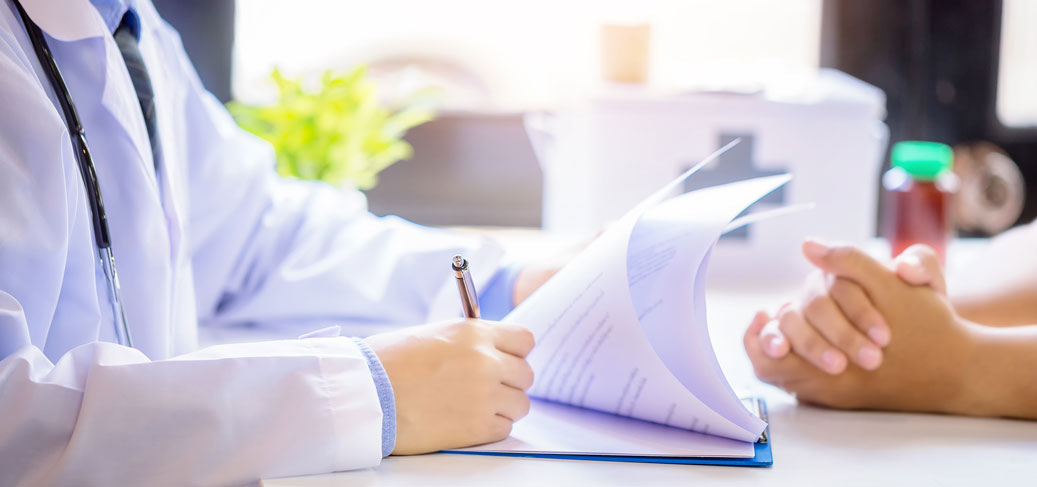A Complete Guide About Phobias
A phobia is when someone experiences a tremendous amount of fear toward an object or situation. It is a type of anxiety disorder that is characterized by feeling afraid or panicked when the individual encounters or even thinks about encountering what they are afraid of and they will usually do what is necessary to avoid the object or situation.
Overview of Phobia
Phobias are more noticeable and disturbing than a typical fear about something. They usually occur when a person has an excessive or irrational sense of threat about an object or a situation. If a phobia is severe enough, the person may adjust their lifestyle to avoid or escape the object or situation that is causing the severe anxiety or panic. Nonetheless, by restricting their lifestyle they are also creating an unhealthy situation.
It may not be possible to prevent the development of a phobia, but treatment can help. For the majority of people, a specific phobia can be addressed with the improvement of symptoms by seeking the assistance of a therapist and depending on the level of severity, psychotropic medications.

Symptoms of Phobia
A person may not recognize the symptoms of a phobia until they come into contact with the source of the phobia. In some cases, only thinking about the source of phobia can make someone feel uneasy or anxious, which is known as anticipatory anxiety.
Symptoms of Phobias may include:
- Instability, vertigo, and lightheadedness
- Excessive sweating
- Nausea
- Shortness of breath
- Higher heart rate (palpitations)
- Trembling of limbs (legs or hands)
- Stomach upset
If a person develops a phobia and rarely comes into contact with the source of the phobia, it may not drastically affect their lifestyle. However, on the contrary, if a person develops a phobia and the source of contact is prevalent, it can lead them to do what is necessary to avoid the object or situation and provoke unhealthy behaviors.
Causes of Phobias
There are many causes of phobias, but the most prevalent is because the person was exposed to a specific incident, trauma, or learning about another person’s response to a specific object or situation. For example, if someone gets bit by a dog they may develop a phobia (extreme fear) of dogs and will avoid them at all costs. There is also research that suggests that some individuals are genetically at higher risk to develop a phobia because they are born with the tendency to develop anxiety.
Common phobias
|
Acrophobia |
Fear of heights |
|
Aerophobia |
Fear of flying |
|
Agoraphobia |
Fear of public spaces |
|
Ailurophobia |
Fear of cats |
|
Amathophobia |
Fear of dust |
|
Arachnophobia |
Fear of spiders |
|
Astraphobia |
Fear of thunder or lightening |
|
Claustrophobia |
Fear of being in closed spaces |
|
Emetophobia |
Fear of vomiting |
|
Ereuthophobia |
Fear of blushing |
|
Genophobia/coitophobia |
Fear of sex |
|
Hemophobia |
Fear of blood |
|
Keraunophobia |
Fear of thunder |
|
Microphobia |
Fear of germs |
|
Mysophobia |
Fear of dirt or contamination |
|
Nyctophobia |
Fear of dark / night |
|
Ochlophobia |
Fear of crowds |
|
Ornithophobia |
Fear of birds |
|
Pathophobia |
Fear of disease |
|
Pnigophobia |
Fear of choking |
|
Pteronophobia |
Fear of feathers |
|
Pyrophobia |
Fear of fire |
|
Triskaidekaphobia |
Fear of number 13 |
|
Xenophobia |
Fear of strangers |
|
Zoophobia |
Fear of animals |
Types of Phobia
There are two major types of Phobias:
- Specific or simple phobias
Specific or simple phobias revolve around a particular object, animal, situation, or activity. These phobias often occur during childhood or adolescence and might become less or more severe over time. Some examples of simple phobias include:
- Environmental phobias
- Bodily phobias
- Animal phobias
- Situational phobias
- Sexual phobias
- Complex phobias
Complex phobias are more disturbing when compared to simple phobias. They usually occur during adulthood and are often related to extreme anxiety or fear about a specific situation or circumstance. Common examples include:
- agoraphobia (fear of being in public)
- social phobia (fear of large crowds, socializing)
Complications of Phobias
Phobias can be devastating to the people who have them and cause complications that affect many aspects of their life. These complications may include:
- Social isolation. Escaping places and things they are afraid of which can lead to problems at school, work, and with relationships.
- Mood disorders. Many people with particular phobias have depression as well as other anxiety disorders.
- Substance abuse. The tension of dealing with a severe specific phobia may give rise to alcohol or drug addiction.
- Suicide. Some people having specific phobias may be at an increased risk of suicide due to increased stress and anxiety levels.
Diagnosis of Phobias
Diagnosis of a phobia depends on a detailed clinical assessment and diagnostic strategies. Your doctor or psychotherapist will take a full psychosocial and medical history.
Treatment of Phobia
The treatment of a phobia involves psychotherapy. There are two effective therapeutic strategies for overcoming a phobia:
- Exposure therapy: This involves exposing the person little by little to the object or situation that is at the root of the phobia. The person’s fear and irrational thoughts are addressed while helping them overcome their fear through exposure to the object or situation.
- Cognitive Behavioral Therapy (CBT) involves exposure, and other behavioral methods to learn different ways to perceive the threat and overcome the feared object or situation.

Medications: When the phobia is severe and causes life-altering behaviors, psychotropic medication may help to lessen the active symptoms of fear, anxiety, and panic. The medications commonly used for the treatment of phobias are:
- Anti-depressants: Anti-depressants are prescribed to reduce the symptoms of anxiety. Selective serotonin reuptake inhibitors are used to treat social phobia, anxiety, or panic disorders.
- Beta-blockers: Beta-blockers are usually prescribed to treat heart problems and high blood pressure etc. These are sometimes used to reduce the anxiety caused by the phobia if the anxiety is causing physical symptoms such as rapid heart rate or palpitations.
- Tranquilizers: Benzodiazepines include medications that calm the nervous system and reduce symptoms of anxiety and help to stop or prevent panic attacks. These medications should be taken only as prescribed and short-term. They can be addictive and difficult to wean off because physical withdrawal symptoms and/or seizures may occur.
